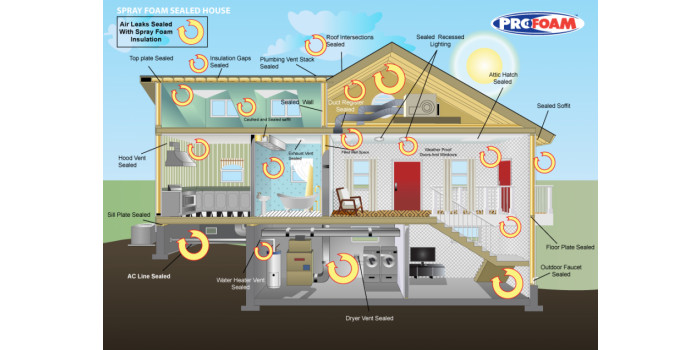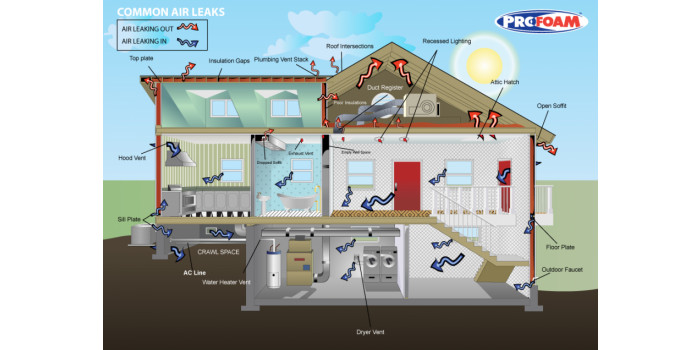

Profoam delivers a full line of professional-grade spray foam insulation and protective coating solutions designed for maximum performance and durability. Our product lineup includes:
Each solution is engineered to provide superior thermal resistance, moisture protection, and long-term structural performance—making Profoam a trusted choice for homeowners, builders, and commercial contractors who demand energy efficiency and reliability.
Profoam’s sprayed-in-place polyurethane foam (SPF) insulation dramatically improves building energy efficiency. By reducing heating and cooling loss by up to 40%, SPF helps lower utility bills while enhancing indoor comfort.
With up to twice the R-value per inch compared to traditional insulation materials, spray foam delivers:
It’s insulation that works smarter—and lasts longer.
One of the biggest advantages of spray foam insulation is its ability to create a seamless, airtight barrier. Profoam products seal around framing, ductwork, outlets, windows, and other penetrations to reduce air leakage and moisture intrusion.
This continuous thermal envelope helps:
Spray foam insulation is a high-performance polyurethane material applied directly into wall cavities, attics, crawl spaces, and roofing systems. Once installed, it expands to form a durable, seamless thermal and air barrier.
There are two primary types of spray foam insulation:
Ideal for exterior walls, roofing systems, and areas requiring maximum insulation performance.
Perfect for interior walls, ceilings, and areas where full cavity fill and noise reduction are priorities.
Both options can be customized to meet the specific needs of residential, commercial, or industrial projects.
When comparing insulation types, spray foam consistently outperforms traditional fiberglass in several key areas:
Energy Efficiency – Creates an airtight seal that significantly reduces heating and cooling costs.
Longevity – Can last up to 80 years, compared to fiberglass at approximately 20 years.
Moisture Control – Blocks both air and moisture, reducing the risk of mold and mildew.
Structural Strength – Closed-cell foam adds rigidity to walls and roofing assemblies.
Fire Resistance – Many products contain fire-retardant additives for added protection.
While the upfront cost may be higher than fiberglass, the long-term energy savings, durability, and performance make spray foam a smart investment with strong ROI.
If you're upgrading an existing home—especially in extreme climates—spray foam insulation provides a powerful long-term solution. It improves comfort year-round while significantly lowering energy costs.
Unlike fiberglass, which typically needs replacement after 20 years, spray foam can perform effectively for decades—making it a future-proof upgrade that pays for itself over time.
Retrofitting with spray foam creates a tight building envelope that reduces HVAC strain and lowers monthly utility bills.
Additional benefits include:
The result is a quieter, healthier, and more energy-efficient home in every season.
In some cases—such as fully finished exterior walls—installation can be invasive unless a major renovation is already planned.
For less disruption and strong energy gains, consider insulating:
These areas often provide the highest return on investment with minimal structural modification.
Heat rises—and without proper attic insulation, energy loss can be significant. Spray foam forms an airtight seal along the roof deck or attic floor, preventing conditioned air from escaping.
Benefits of insulating your attic with spray foam include:
Attic insulation is often one of the most impactful upgrades a homeowner can make.